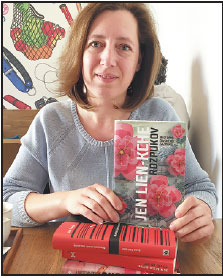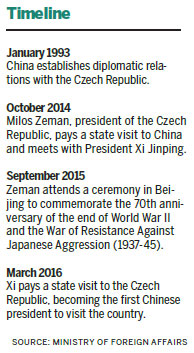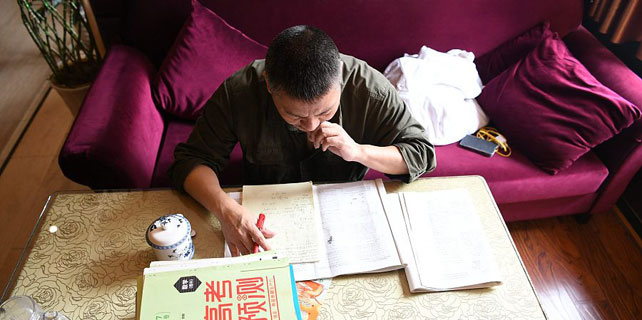Translator opens a new chapter for Chinese literature
 |
|
Suzana Li holds her translation of The Explosion Chronicles by Yan Lianke. [Photo by Fu Jing/China Daily] |
When Milos Zeman gave a speech at Renmin University of China in late 2014, the Czech president received a special gift: a Czech-language edition of The Four Books, a novel by Chinese writer Yan Lianke.
The book, which won the Franz Kafka Prize in 2014, describes events in China during the 1950s and 60s. It took Yan, a professor at Renmin, 20 years to plan and two years to write.
 Suzana Li, from the Czech Republic, translated the book, along with works by other Chinese writers, such as Su Tong and Liu Zhenyun.
Suzana Li, from the Czech Republic, translated the book, along with works by other Chinese writers, such as Su Tong and Liu Zhenyun.
Recalling Zeman's gift, she said fruitful exchanges between China, the Czech Republic and other European countries rely heavily on gaining the trust of the general populace, winning hearts and minds: "Literature and movies are the perfect vehicles to achieve that aim."
Ahead of Zeman's arrival in Beijing to attend the Belt and Road Forum for International Cooperation at the weekend, Li was keen to deliver the message that the participants should support the translation of great literature and help bridge cultural gaps, even in an era of digital transformation.
"Films have taken the upper hand now, but literature is essential as well in narrowing the gulf in understanding," said Li, who began studying Chinese in the 1990s and gained a doctorate in Chinese literature at Peking University 10 years ago.
She finds the accounts of love, hardship, despair, sorrow and success in Chinese literature so compelling that she spends six hours a day, six days a week working on translations in her study.
"I spend roughly the same amount of time reading the books when I am tired after a day spent translating. Sometimes, I struggle to understand the writers' narrative styles."
Li is constantly delighted by the plots that show how ordinary Chinese live their lives, how they earn their daily bread and how their fates change.
"I hope more Czech readers will share my delight in reading these stories," she said.
Her latest translation is The Explosion Chronicles, also by Yan, which describes how a village in the writer's home province of Henan, Central China, has been transformed in the past three decades as a result of country's rapid economic development.
Li's translations of Yan's books will help Czech readers understand the path of China's recent development.
One of the other books she has translated is I Did Not Kill My Husband, by Liu Zhenyun. Li is impressed by Liu's writing style, which she finds humorous and easy to understand.
"It's witty and funny, and it illustrates the everyday lives of Chinese people. That's why the Czech publisher was interested in the book. I think it's a good way for Czech readers to understand Chinese people's lives," she said.
Li's translation skills have seen her receive subsidies from the headquarters of the Confucius Institute, which promotes Chinese culture and language overseas. In August, the Chinese government presented her with an award to honor her work.
With regard to the Belt and Road Initiative, she said: "In my view, it is a colossal building that will require patient day-by-day work for many years. I am confident that what I am doing to help Czechs learn about the lives of ordinary Chinese people via translated best-sellers is laying the foundations, which is essential and effective."









